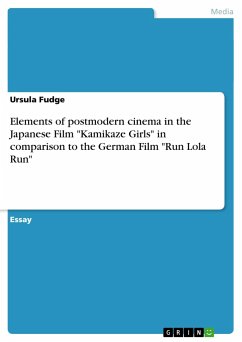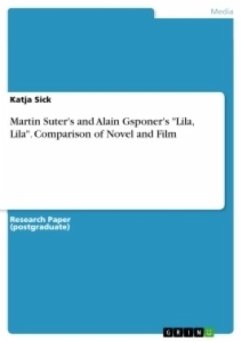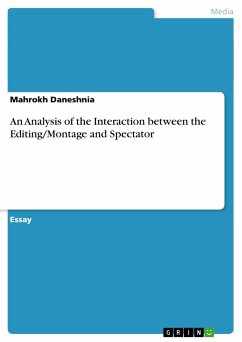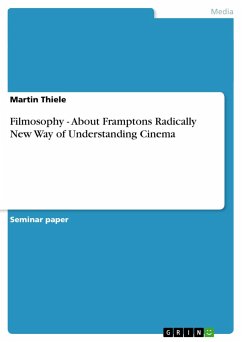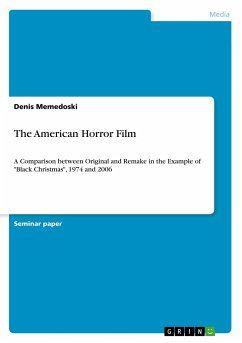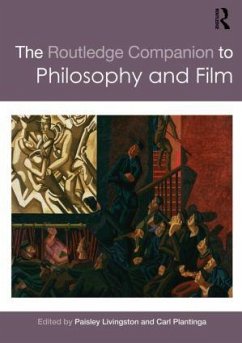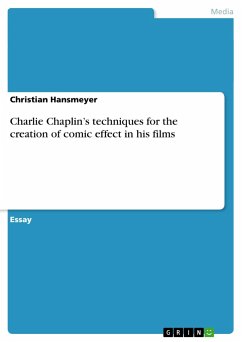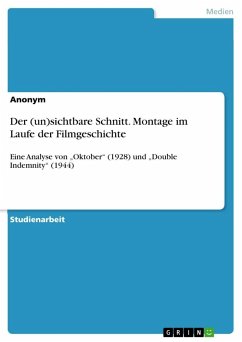
Sergei Eisenstein's Montage Techniques and their Meanings in Comparison to Louis Buñuel's "Un Chien Andalou"

PAYBACK Punkte
0 °P sammeln!
Essay from the year 2011 in the subject Film Science, grade: 1,3, University of Essex (Film), course: Introduction to Film, language: English, abstract: In the 1930s the Soviet revolutionary cinema changed the former understanding of film editing, ahead of everyone Sergei Eisenstein (1898-1948), whose aim it was to promote the idea of political rebellion. Cinema was the easiest way to transport a political conviction to all people, from upper class to peasants, who were unable to read. Truth could be boring and so the events had to be dramatized to encourage imitation. This essay will examine ...
Essay from the year 2011 in the subject Film Science, grade: 1,3, University of Essex (Film), course: Introduction to Film, language: English, abstract: In the 1930s the Soviet revolutionary cinema changed the former understanding of film editing, ahead of everyone Sergei Eisenstein (1898-1948), whose aim it was to promote the idea of political rebellion. Cinema was the easiest way to transport a political conviction to all people, from upper class to peasants, who were unable to read. Truth could be boring and so the events had to be dramatized to encourage imitation. This essay will examine the innovative montage techniques of Eisenstein and their meanings with emphasis on The Battleship Potemkin . In addition, a comparison to Louis Buñuel's Un chien andalou , one of the most famous Surrealist films, will be drawn. The movement of Surrealism grew out of a Parisian society of artists, writers and filmmakers who tried to create an immediate translation of dreams, imagination and the unconscious. The recipient should be dissuaded from his habitual viewing or thinking patterns.




